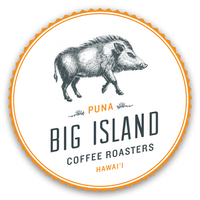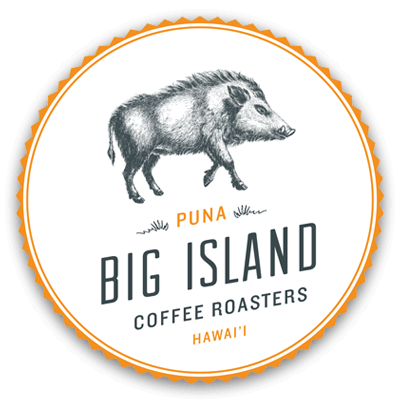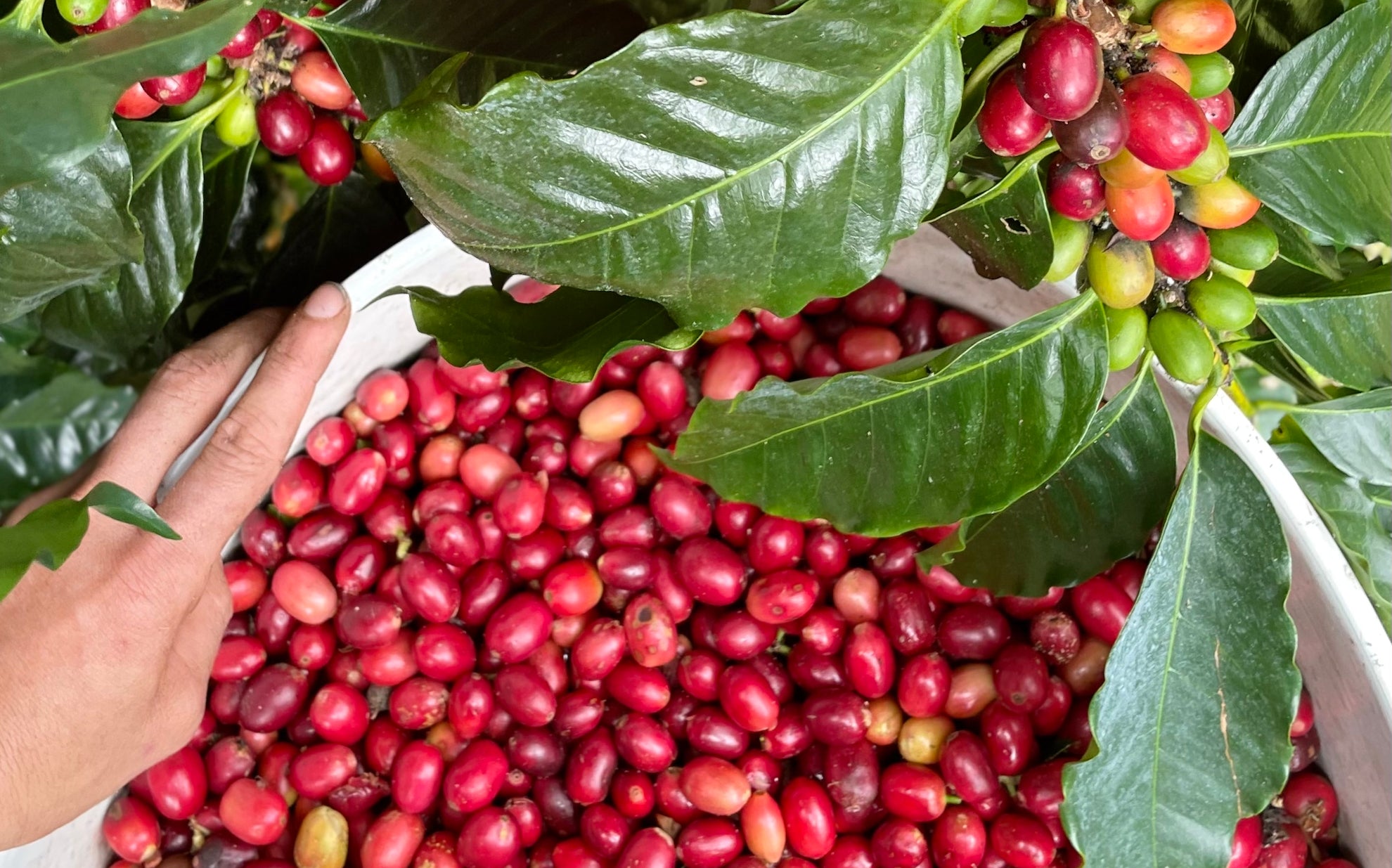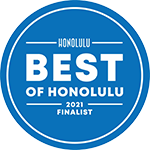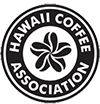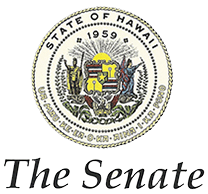Just like the Champagne grapes grown in the Champagne region of France, 100% Kona coffee can only be cultivated in a specific region of Hawaii: on the slopes of Hualalai and Mauna Loa in the North and South Kona Districts of the Big Island of Hawaii. But unlike Champagne, Kona coffees can be of any variety, just so long as they achieve certain state-regulated quality standards.
In other words, to be labeled "Kona Coffee," 100% of the coffee must be grown in the Kona district and must be above a certain quality level. However, it can be of any arabica coffee variety.
THE ORIGINAL KONA COFFEE VARIETY: KONA TYPICA
The Kona Typica variety is responsible for the soft, lush, chocolatey, and floral profile that's found in 100% Kona coffee.
We refer to this as being the "heritage Kona style." This is because Kona Typica has been grown in the district since 1832 – for more than 180 years.
Today, coffee growers are planting a range of exotic new varieties across Kona, such as SL-28, Geisha, and Bourbon. While these aren't the traditional Hawaiian Kona coffee varieties that made the region famous, they offer exciting new flavors and experiences for coffee lovers who want to branch out.
It's also important to remember that the State of Hawaii doesn't regulate coffee varieties in the same way that France regulates Champagne grape varieties. So, if you're a coffee lover on a quest for traditional Kona coffee in Hawaii, you'll want to stick to shopping Kona Typica.
While many of the new varieties are dynamic and amazing, they're also stark departures from the smooth, chocolatey, and peachy profile of a traditional Kona Typica. We love them all.
COUNTERFEIT & BLENDED KONA COFFEE
If you’re looking for authentic 100% Kona coffee, you should also know that federal laws don't protect Kona coffee labeling – only Hawaiian state laws do.
That means that counterfeiting and mislabeling is not a crime outside of Hawaii, unfortunately. The best way to make sure you're getting genuine 100% Kona coffee is to shop from a reputable company that roasts and sells it in Hawaii, rather than buying it and roasting elsewhere.
